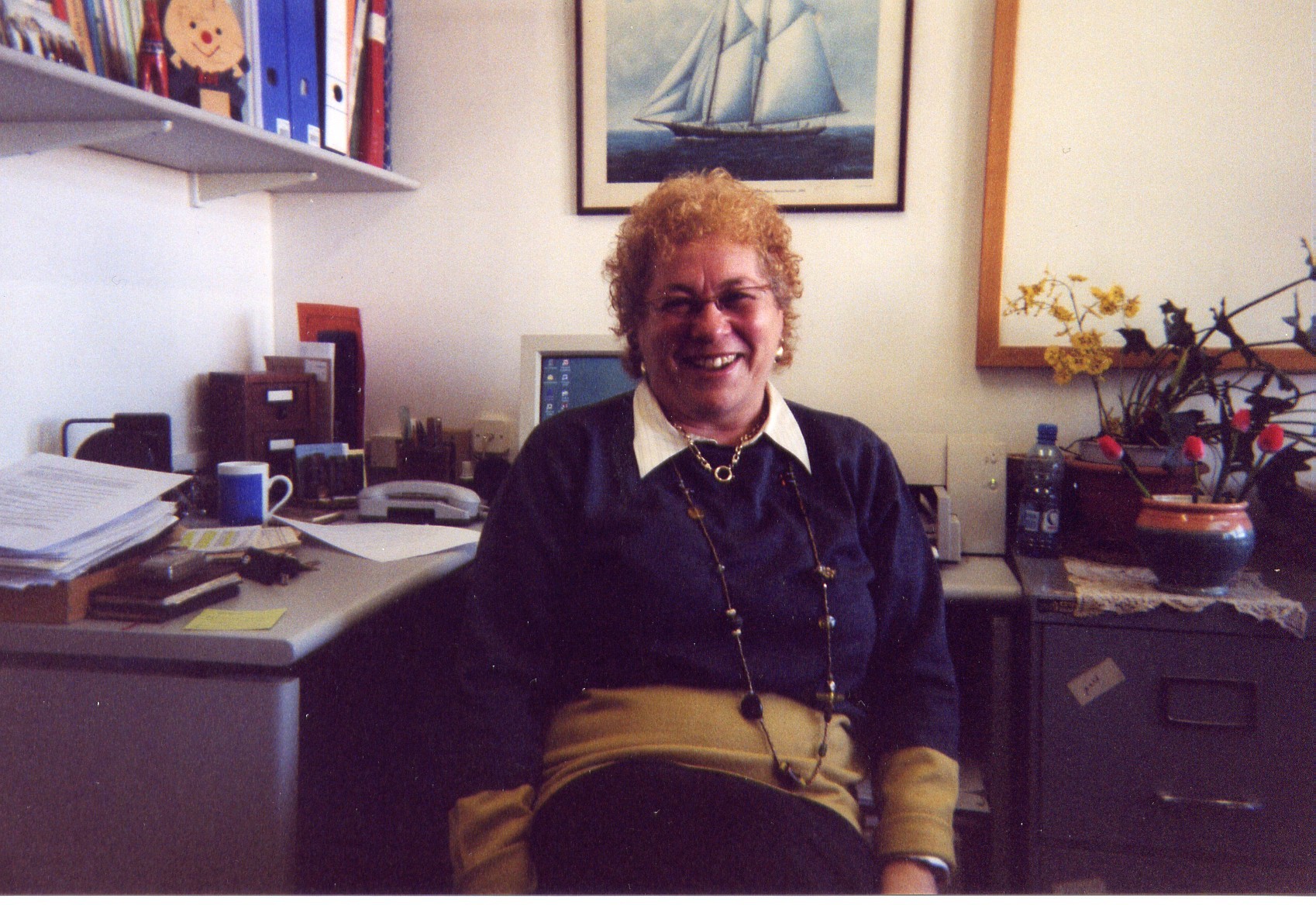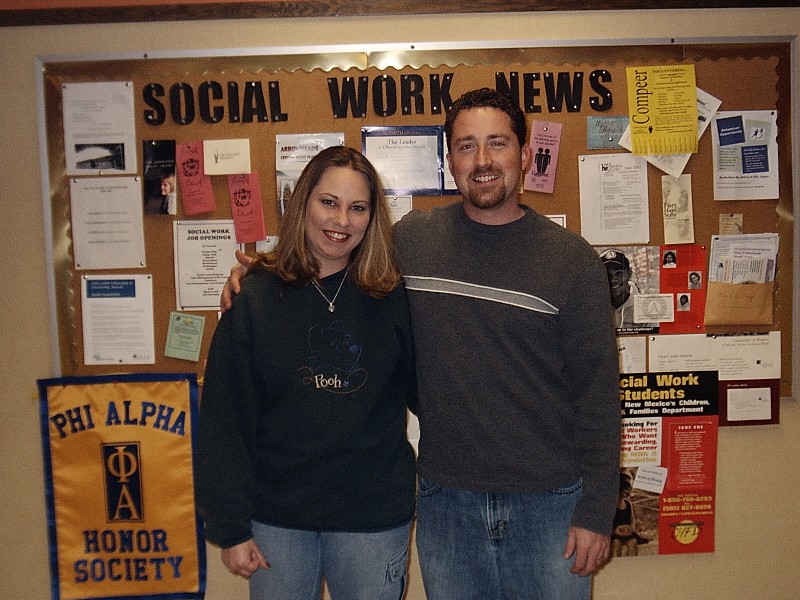|

|
| Patricia Levy |
With the expected war with Iraq, and the possibility of military consequences to the Israeli public, Professor Patricia Levy
of the Department of Sociology & Social Work at Fort Hays State University in Kansas, on a visit to Israel, made contact
with Professor Rena Feigin, Director of the Health and Social Work Program at Tel Aviv University, Bob Shapell School of Social
Work. Because of the impact of war and terrorism on individuals, families, and society in general, social work crisis intervention
and follow-up in these situations is critical. Both professors felt that social work students could benefit and learn from
the opportunity to discuss and share their respective experiences; the Israeli students who had in many cases, had families
of intergenerational service in the military and who had experience previous wars and terrorism, and American students who
had experienced September 11th's terrorist attack and the preparation of their country's entrance to the coming war.
As a result, a Fort Hays State University online discussion board was created that included secured access and passwords
for social work participants from both programs. The Social Work Exchange formally opened in the last week of March, 2003
with the United States formally at war with Iraq and Israel on a state of alert with civilians carrying gas masks and preparing
sealed rooms in preparation of possible Iraqi missile attack. A welcoming statement was posted that included the educational
goals, purpose, and ground rules for posting messages on the site.
In their introductions, the Israeli students, most of whom were undergraduates with the participation of one Master's
level student, related that had completed their mandatory army service in the Israeli Defense Forces while one student described
her alternative service in community work in a medical setting. Consequently, the Israeli students had entered at a later
age into their university studies and were, for the most part, older than the Fort Hays State University students although,
a non-traditional student, and a social work faculty member shared their experiences in the military including the Vietnam
War.
Both professors welcomed, participated and monitored the site while encouraging dialogue and posing possible topical questions
of interest to both groups such as:
How do you think the war in Iraq is affecting people? In Israel? In the United States? As social work students, what do
you think can be done to help?
Last night I was watching CNN and they showed film of mothers sitting on the side of the road with children in their laps.
If you notice, most of the clips from Iraq are either mainly men or mainly women. I saw almost no examples of couples together.
Anyway, I wondered what the woman on the road side would talk about. What would she say she needed? The child looked so bewildered.
What do you do when you've lost your home? If I were a social worker with the Army, I wonder what this mother would say to
me about her feelings. It was a sad picture. What do you think? I wonder what we could do?
Or as Dr. Feigin asked, "We have joined together at a time that both countries are at war, which is a very difficult
time. As social workers I wonder how we feel about it? It is not only politics, but also a real social problem with a lot
of human suffering. Let's share some of our feelings and thoughts about it."
The community of students shared some family and cultural history with each other. In addition, they discussed their
views on the occurrence of disasters and the resulting human suffering, commenting that whatever you may say to a victim of
war may never be enough, or perhaps just a "simple hello could bring her back to life?" Another Israeli student
compared the reactions of people to the Iraq war as compared to the Gulf war. She expressed her feeling that classmates seemed
to be responding more calmly than the last time around she also commented on how stressful the future seemed to be, and wanted
to know the response of the American students watching Israelis on TV going around with their gas masks and sealing rooms
in their homes with nylon and duct tape.

|
| Fort Hays State University Students |
Some of the Fort Hays students voiced their amazement at what Israelis were experiencing and their unawareness of these conditions.
They also realized how grateful they were to be living in Kansas where they don't have to worry about anything except the
increase of the cost of gas. In return, the students also asked for the Israeli students' views of Americans. After the cancellation
of the Israeli alert, an American student expressed her relief at the Israeli students being able to return to a normal life.
Much of the continuing dialogue focused on such subjects as how to cope with stress and the role of the media and resulting
psychological effects on viewers. The issue of resiliency seemed to be a central focus for all of the participants as a source
of personal growth and strength on micro and macro levels to bear the hardships of war and of life. For example, an Israeli
student, mentioning Israel's commonality of mixed cultural origins to that of the United States, wanted to know the reason
behind America's struggles with race relations, and poverty and how social work intervention could impact on these issues.
The Social Work Exchange ended with the end of the Fort Hays State University's semester last May. Even for the short
time that the site operated, students and faculty from both countries shared, supported, and gained knowledge about each other
in a time of crisis. The students mentioned that it was a very special opportunity for them to communicate with students
overseas. This experimental setting focused on the global aspects of war and terrorism, the social impact on people and society,
and the implications for student learning within an expanded cultural and educational setting.
|

